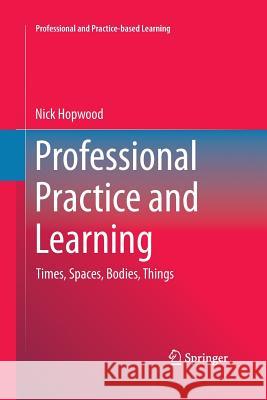Professional Practice and Learning: Times, Spaces, Bodies, Things » książka
topmenu
Professional Practice and Learning: Times, Spaces, Bodies, Things
ISBN-13: 9783319342931 / Angielski / Miękka / 2016 / 372 str.
Kategorie:
Kategorie BISAC:
Wydawca:
Springer
Seria wydawnicza:
Język:
Angielski
ISBN-13:
9783319342931
Rok wydania:
2016
Wydanie:
Softcover Repri
Ilość stron:
372
Waga:
0.55 kg
Wymiary:
23.39 x 15.6 x 2.08
Oprawa:
Miękka
Wolumenów:
01
Dodatkowe informacje:
Wydanie ilustrowane











